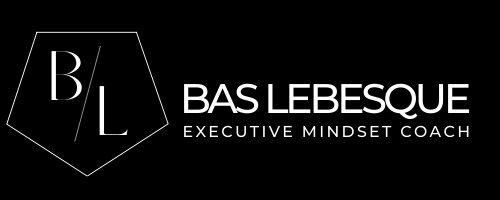"Self-Accountability: Is It Always Enough?"
In the realm of personal and professional development, there's a belief: "Self-accountability is sufficient." It's a mantra often repeated by those who pride themselves on self-discipline. But let's look at this idea. Is relying on self-regulation truly effective, especially when we consistently fall short of our goals?
The Lone-Wolf Mentality 🐺
There's a certain appeal to being a lone wolf, solely accountable to oneself. It speaks to our desire for independence. This mindset implies that we have complete control over our actions and outcomes and that external accountability is unnecessary. But how realistic is this in practice?
The Pitfall of Echo Chamber Thinking 🔄
When we rely only on self-accountability, we risk creating an echo chamber. Our personal biases and justifications can cloud our judgment. While it’s important to be self-driven, it's equally important to recognize that we might not always see -> our blind spots.
The Challenge of Objective Self-Assessment 🤔
Being objective in assessing our progress is harder than it sounds. We might overlook our shortcomings or overestimate our achievements. Consistent failures to meet goals can indicate that our self-assessment might not be as impartial as we think.
The Myth of Self-Sufficiency 🏰
The belief in self-sufficiency is similar to building a fortress with no windows – you're safe inside, but your view is limited. Relying solely on self-accountability is based on the assumption that we always know what's best for ourselves in every situation. But this overlooks the complexity of human behavior and motivation.
The Value of External Perspectives 🌐
There’s immense value in external perspectives. Other people can provide feedback and insights that we might miss or ignore. They can challenge our assumptions and push us beyond our comfort zones.
The Reality of Human Nature 🌿
Humans are social creatures, and our growth often occurs in relation to others. Isolating ourselves in the name of self-accountability can hinder our ability to grow and adapt.
Striking the Right Balance ⚖️
So, what's the ideal approach? It's about striking a balance between self-accountability and openness to external input.
Embracing Collaborative Growth 🤝
Instead of viewing self-accountability as the only path, consider it a part of a broader strategy. Collaborative growth, where we hold ourselves accountable but also seek and accept outside help, can lead to more meaningful progress.
The Role of Community in Personal Development 🌍
Engaging with a community or a mentor can provide the support we sometimes lack when going it alone. This external accountability doesn’t diminish our self-discipline; it enhances it.
Conclusion: Beyond the Self-Accountability Bubble 🎈
In summary, while self-accountability is a valuable trait, it's not always sufficient, especially when we find ourselves continually falling short of our goals. The key is not to discard self-accountability but to complement it with external perspectives and support.
We open ourselves to a world of insights, learning, and growth opportunities by stepping beyond the self-accountability bubble. It's not about relinquishing control but about enriching our journey with diverse viewpoints and experiences.
So, let's embrace a more holistic approach to accountability. It's not just about being answerable to ourselves; it's about being part of a larger network of support and growth.
Join Our Weekly Accountability Mastermind 🌟
In recognizing the limits of self-accountability, why not consider joining a weekly accountability mastermind? This is more than just a group; it's a community dedicated to mutual growth and support. Each Monday morning, we come together to set up goals, review progress, and provide support to stay on track.
“The road to succes and the road to failure are almost exactly the same.”


